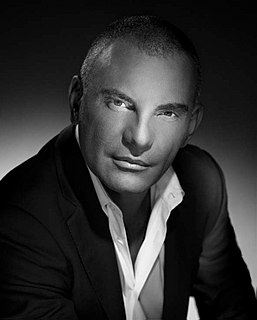A Quote by Christian Audigier
Everyone drinks more during a recession; they want to forget.
Related Quotes
Never drink diet soda. It shows you have no nerve. Only drink real colas, caffeine-packed energy drinks, or vitamin water. Hate champagne because that’s what everyone expects you to love. Energy drinks are the best party drinks. You never get tired, you never get a hangover, and you can make fun of all the loaded people who think they’re clever but are really acting stupid.
When you're in the depths of a recession, that isn't the time when people want to challenge the system, they're too busy trying to survive. It's when they're told we're coming out of a recession, growth is returning, and they're not seeing the benefits of it, or they're not seeing them quick enough.
I think Welfare Reform did more harm than good, but one piece of good it did was it changed the attitudes of Americans. If we look at voter surveys even before the recession, the idea that people are poor because they're lazy was much stronger in the early '90s than it was even before the recession. Now with the recession, everybody knows somebody who is poor through no fault of their own. So voter attitudes are more favorable than they've been since the '60s.
There are times when a market such as housing, transportation or the stock or mortgage market keep rising and people with capital want to join in this growth. Soon the markets become overheated, partly because of the abundance of investment money and speculation. This is when the government should raise interest rates and increase the cost of borrowed money. Governments are shy about doing this because it could cause the very recession. Yet this is the best time to do this so that the inevitable recession never reaches the magnitude of the recent Great Recession.
The bigger the movie is, the more agendas everybody has. It becomes more of a job for everyone, but on these small movies, you're making them because you want to make them. You're there because you want to do it. When you make a small movie, the one thing you have is that everyone is unified. That's what you need. You want everybody to want to be there and be a part of the project. If you can cultivate that, everyone works hard for it.








































